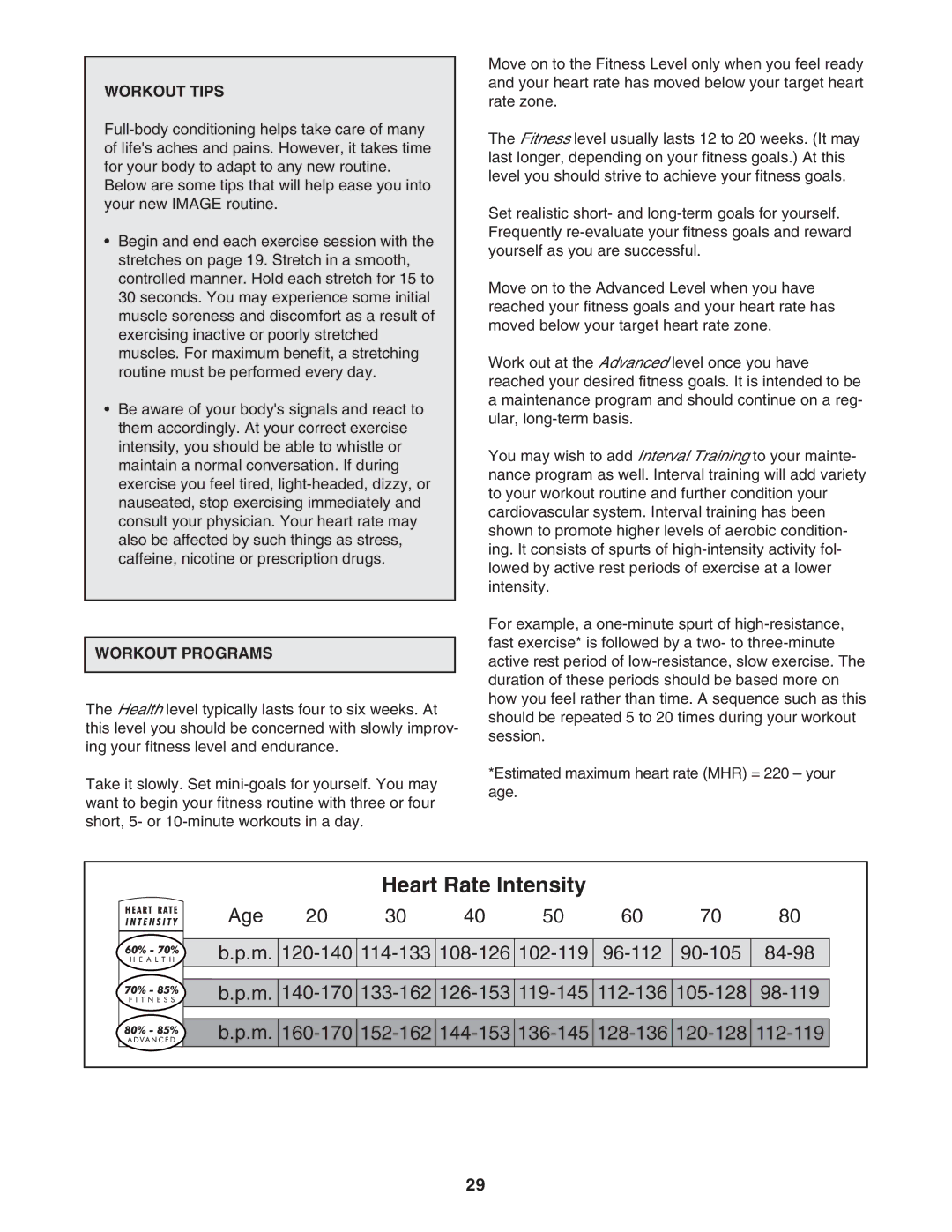
WORKOUT TIPS
Below are some tips that will help ease you into your new IMAGE routine.
•Begin and end each exercise session with the stretches on page 19. Stretch in a smooth, controlled manner. Hold each stretch for 15 to 30 seconds. You may experience some initial muscle soreness and discomfort as a result of exercising inactive or poorly stretched muscles. For maximum benefit, a stretching routine must be performed every day.
•Be aware of your body's signals and react to them accordingly. At your correct exercise intensity, you should be able to whistle or maintain a normal conversation. If during exercise you feel tired,
WORKOUT PROGRAMS
The Health level typically lasts four to six weeks. At this level you should be concerned with slowly improv- ing your fitness level and endurance.
Take it slowly. Set
Move on to the Fitness Level only when you feel ready and your heart rate has moved below your target heart rate zone.
The Fitness level usually lasts 12 to 20 weeks. (It may last longer, depending on your fitness goals.) At this level you should strive to achieve your fitness goals.
Set realistic short- and
Move on to the Advanced Level when you have reached your fitness goals and your heart rate has moved below your target heart rate zone.
Work out at the Advanced level once you have reached your desired fitness goals. It is intended to be a maintenance program and should continue on a reg- ular,
You may wish to add Interval Training to your mainte- nance program as well. Interval training will add variety to your workout routine and further condition your cardiovascular system. Interval training has been shown to promote higher levels of aerobic condition- ing. It consists of spurts of
For example, a
*Estimated maximum heart rate (MHR) = 220 – your age.
|
| Heart Rate Intensity |
|
|
| ||
Age | 20 | 30 | 40 | 50 | 60 | 70 | 80 |
b.p.m. | |||||||
b.p.m. | |||||||
b.p.m. | |||||||
29
